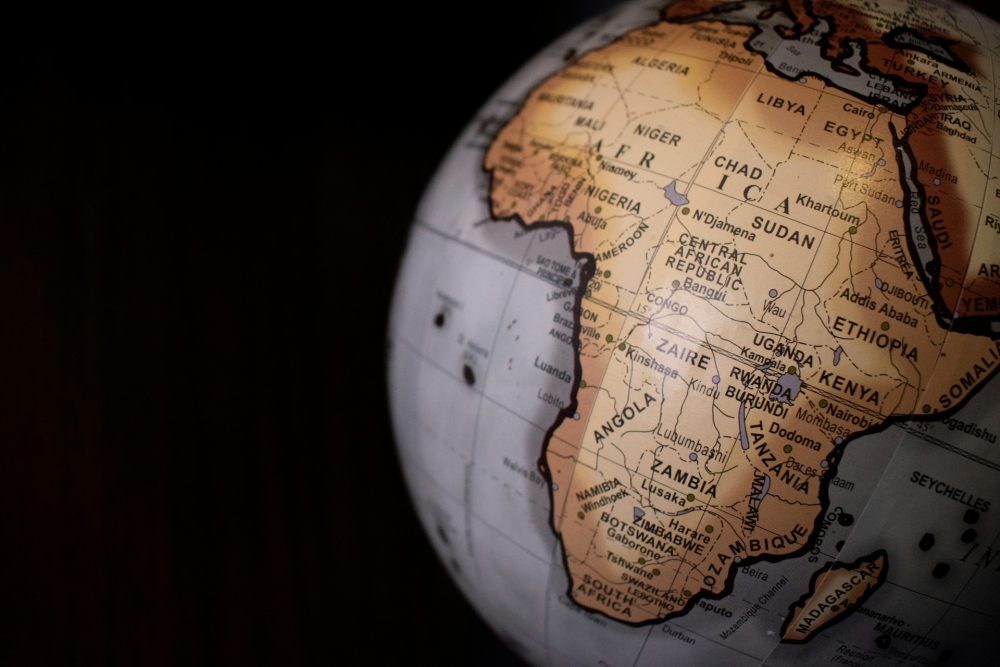Africa
Africa’s Agricultural Awakening: From Food Importer to Global Breadbasket
Africa imports over 100 million tons of food yearly, spending $75 billion, despite its vast agricultural potential. The Russo-Ukrainian war worsened food and fertilizer shortages. However, AfDB’s TAAT program has helped 12 million farmers and boosted wheat self-sufficiency in Ethiopia and Sudan. New initiatives aim to feed 200 million people and reduce hunger by 80%.

Africa still depends on food imports, spending more than $75 billion annually to import over 100 million tonnes of food.
“Africa should not import food. It should become a major food-producing region and supply its surplus to the rest of the world. If there is one thing Africa can do for the world, it is to help it feed itself,” the AfDB president protested.
Yet the Russo-Ukrainian war has affected food security on the African continent. It has led to a surge in the prices of wheat and corn imported from Russia and Ukraine.
Indeed, Ukraine supplies 31% of Africa’s corn imports. Due to the war, the continent is unable to import some 30 million tons of food.
The continent, which also relies on large fertilizer imports from Russia and Ukraine, is also facing a crisis at this level, as prices have increased two to fourfold since 2020, severely limiting the purchasing power of governments and private buyers.
Technological adaptation and transformation
Progress in agriculture in Africa is quite encouraging, despite current challenges. The African Development Bank’s Technologies for African Agricultural Transformation (TAAT) program, supported by the Bill & Melinda Gates Foundation, the Alliance for a Green Revolution in Africa, and others, is beginning to yield results on the ground, on farms across the continent.
Since its launch in 2018, TAAT has helped provide improved agricultural technologies to nearly 12 million farmers and helped produce 25 million tons of food. The results achieved in Sudan and Ethiopia are landmark. In Ethiopia, heat-tolerant wheat varieties have enabled the country to become self-sufficient in wheat production.
According to the AfDB, in just three years, cultivated areas have increased from 5,000 hectares in 2018-2019 to 645,000 hectares in 2021-2022. Ethiopia plans to become a net wheat exporter to Djibouti and Kenya. Sudan has also cultivated heat-resistant wheat varieties on 317,000 hectares and halved its wheat imports in just two years.
New strategies for access to financing in Africa
The African Development Bank, the Alliance for a Green Revolution in Africa, the Sustainable Trade Initiative (IDH), the International Fund for Agricultural Development (IFAD), and Sustain Africa have launched “Mission 1 for 200,” which aims to ensure long-term food security.
The goal is to mobilize $1 billion to scale up climate-resilient agricultural technologies, double food productivity for 40 million smallholder farmers, produce 100 million tons of food, and feed 200 million people.
“Think about what that means: it means we will be able to reduce hunger in Africa by more than 80%,” enthuses the AfDB president.
The Sustain Africa initiative, for its part, aims to help Africa produce food on 7 million acres, support 1.6 million farmers, produce staple food crops, and address some of the food security implications of the Russo-Ukrainian war in Africa.
__
(Featured image by James Wiseman via Unsplash)
DISCLAIMER: This article was written by a third party contributor and does not reflect the opinion of Born2Invest, its management, staff or its associates. Please review our disclaimer for more information.
This article may include forward-looking statements. These forward-looking statements generally are identified by the words “believe,” “project,” “estimate,” “become,” “plan,” “will,” and similar expressions. These forward-looking statements involve known and unknown risks as well as uncertainties, including those discussed in the following cautionary statements and elsewhere in this article and on this site. Although the Company may believe that its expectations are based on reasonable assumptions, the actual results that the Company may achieve may differ materially from any forward-looking statements, which reflect the opinions of the management of the Company only as of the date hereof. Additionally, please make sure to read these important disclosures.
First published in LES ECO.ma. A third-party contributor translated and adapted the article from the original. In case of discrepancy, the original will prevail.
Although we made reasonable efforts to provide accurate translations, some parts may be incorrect. Born2Invest assumes no responsibility for errors, omissions or ambiguities in the translations provided on this website. Any person or entity relying on translated content does so at their own risk. Born2Invest is not responsible for losses caused by such reliance on the accuracy or reliability of translated information. If you wish to report an error or inaccuracy in the translation, we encourage you to contact us

-

 Fintech6 days ago
Fintech6 days agoImpacta VC Backs Quipu to Expand AI-Driven Credit Access in Latin America
-

 Fintech2 weeks ago
Fintech2 weeks agoNubank Launches in Argentina With $474M Bet to Shake Up the Fintech Market
-

 Impact Investing3 days ago
Impact Investing3 days agoClimate Losses Drive New Risk Training in Agriculture Led by Cineas and Asnacodi Italia
-

 Biotech1 week ago
Biotech1 week agoWhy Bioceres Shares Slide Into Penny Stock Territory





















